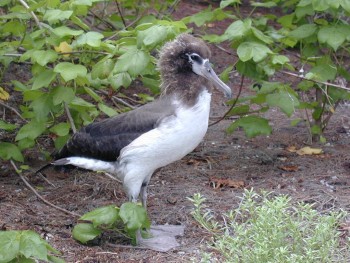The Governments of Kiribati and the USA have signed a Cooperative Arrangement to coordinate and jointly support research and conservation activities in the Pacific Remote Islands Marine National Monument (PRIMNM) in the United States and the Phoenix Islands Protected Area (PIPA) in Kiribati. The agreement was signed as part of the International Union for Conservation of Nature’s (IUCN) World Parks Congress, being held this month in Sydney, Australia (click here).
“The arrangement strengthens cooperative management of the two protected areas, collectively called the Phoenix Ocean Arc, that make up a wide swath of the Pacific, including entire island ecosystems, coral reefs, seamounts and marine areas. Collaborative activities may include scientific research, law enforcement, the removal of shipwrecks, conservation of seabirds and eradication of non-native species, such as rats from atolls.”
The Pacific Remote Islands Marine National Monument, first declared in 2009, was expanded to nearly 1.27 million km² in September this year (click here). Kiribati established PIPA in 2008 to protect 408 250² km in the central Pacific. PIPA was recognized as a World Heritage Site in 2010. The Kiribati Government recently announced the closure of PIPA to commercial fishing from 1 January 2015 (click here).

A Laysan Albatross chick on Wake Atoll, photograph by R, Wheeler
A few ACAP-listed Laysan Phoebastria immutabilis and Black-footed P. nigripes Albatrosses have occasionally bred on Wake Atoll within the PRIMNM. PIPA does not support any currently listed ACAP species but a number of other procellariiforms breed, including Audubon’s Puffinus lherminieri and Christmas P. nativitatus Shearwaters (click here).
Read more on the Phoenix Ocean Arc here.
Selected Literature:
Rauzon, M.J., Boyle, D., Everett, W.T. & Gilardi, J. 2008. The status of the birds of Wake Atoll. Atoll Research Bulletin No. 561. 41 pp.
John Cooper, ACAP Information Officer, 19 November 2014

 English
English  Français
Français  Español
Español